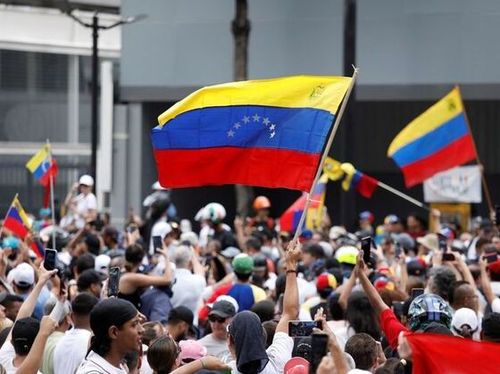Venezuelan politics has seen a dramatic turn of events, as the opposition leader Edmundo Gonzalez has fled his homeland to seek asylum in Spain. This move comes after a contentious election and subsequent arrest warrant issued against him. Gonzalez, who has been a prominent figure in Venezuelan politics, left the country on September 8, 2024, and arrived at the Torrejon de Ardoz military base in Madrid, where he was granted asylum.
The Political Crisis in Venezuela
Edmundo Gonzalez, a prominent figure in Venezuelan politics, left the country amid accusations that the July 2024 election was rigged. The National Electoral Council, which is controlled by Maduro’s government, declared Maduro the winner.
Many Western governments, including the United States and the European Union, have also not recognized Maduro's victory. Also, Gonzalez and the opposition rejected the results, claiming he had won by a significant margin. The opposition even published data online suggesting Gonzalez’s victory, intensifying the government’s crackdown on dissent.
Seeking Asylum in Spain
Following this dispute, the Venezuelan government issued an arrest warrant for Gonzalez, who had gone into hiding before eventually seeking refuge in the Spanish embassy in Caracas. His asylum request was accepted by Spain, and on September 8, 2024, Gonzalez was safely flown to Spain on a Spanish Air Force plane.
Spain’s Foreign Minister, José Manuel Albares, confirmed Gonzalez’s safe passage, stating that the Spanish government is committed to supporting the political rights of Venezuelans. He stated, "Any person whose physical integrity or fundamental rights may be endangered would be welcomed in Spain and its embassy.”
The European Union foreign policy chief Josep Borrell expressed his displeasure for the whole situation, saying, "Today is a sad day for democracy in Venezuela. In a democracy, no political leader should be forced to seek asylum in another country.”
Gonzalez’s Asylum: A New Phase in Venezuela's Crisis
Gonzalez's exile is a major blow to the millions of Venezuelans who supported his campaign to end two decades of single-party rule under Maduro. In a statement on social media, Venezuela’s Vice President Delcy Rodríguez confirmed that Gonzalez had “voluntarily” sought refuge at the Spanish embassy and had been granted safe passage to leave the country.
Despite his physical absence, Gonzalez has vowed to continue his fight for democracy from Spain.
However, the government continues to pursue and detain opposition figures, with six political activists currently taking refuge in the Argentine embassy in Caracas. The Venezuelan foreign ministry has accused these activists of plotting terrorist acts, further deepening the political divide.
The Venezuelan government has detained over 2,400 political opponents since the election, according to the United Nations, creating what many international observers describe as a “climate of fear.”
Final Thoughts
Gonzalez's move to Spain appears to be a strategic one rather than personal. Many believe it allows him to operate from a safer environment while maintaining his influence and support base. His supporters remain hopeful that he will be able to return to Venezuela and take office on January 10, 2025, when the next presidential term begins.




